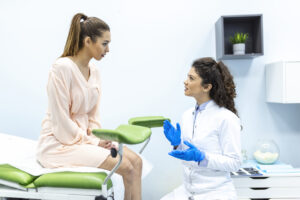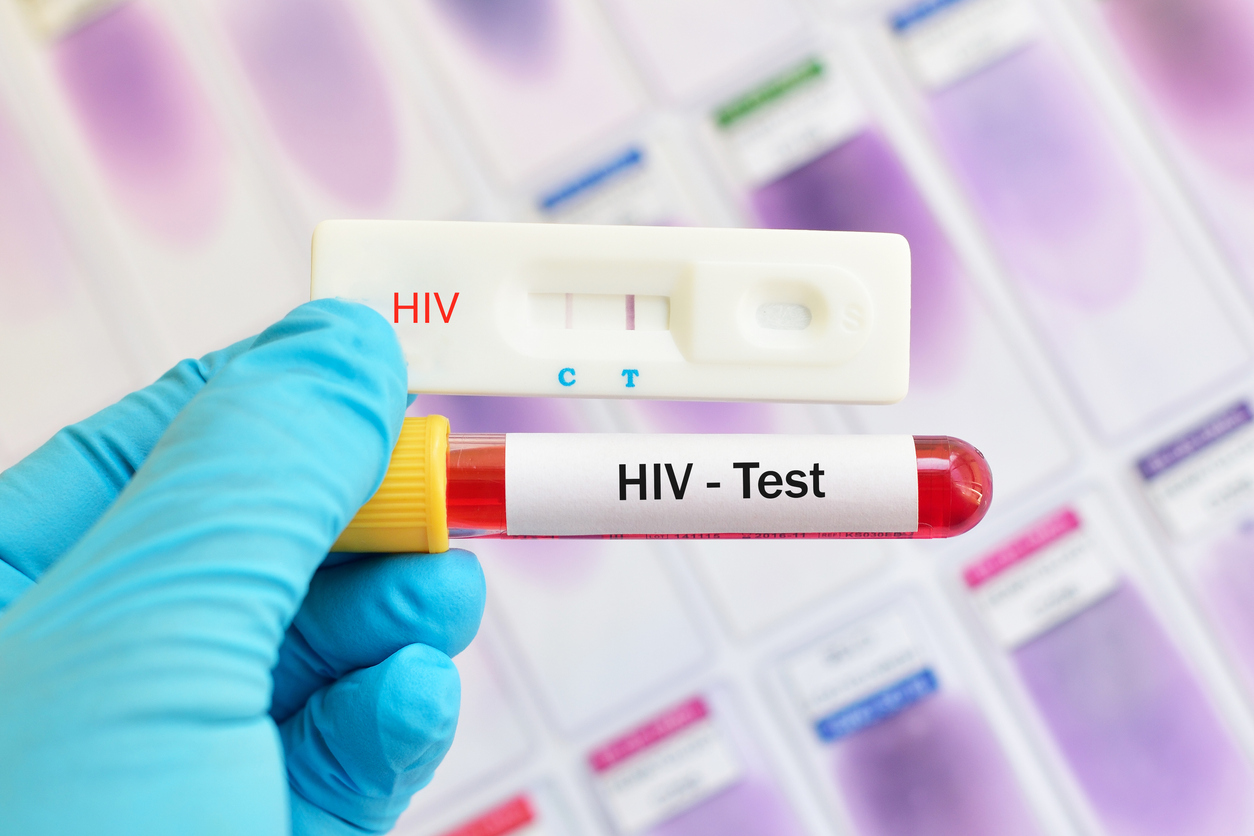Sexually transmitted diseases (STDs) are infections that are transmitted through sexual contact and can be very contagious. These infections can cause a range of symptoms, from mild discomfort to serious health complications if left untreated. Some of the most common STDs include chlamydia, gonorrhea, syphilis, herpes, human papillomavirus (HPV), HIV/AIDS, hepatitis B and C, and trichomoniasis. Some STDs may not have any visible symptoms and some of the typical symptoms can be mistaken for other conditions, or vice versa. This makes regular STD testing critical in order to make sure any STDs present may be detected and treated.
There are actually a few different types of STD tests available. These include blood tests, urine tests, swab tests, saliva tests, and Pap smear tests. The type of test needed will depend on the specific STD being tested for. This is because each test has a different way of detecting STDs, and the results may be presented differently for each one.
Interpreting an STD test result can be complicated, and it is recommended that you consult a healthcare provider or doctor for help. Results are typically presented as positive or negative, thus indicating whether or not the infection is present in the body. False negatives and false positives can occur, so it’s important to discuss the results with a healthcare provider to make sure you get an accurate interpretation.
Regardless of whether your test is negative or if the test result is positive, it’s important to follow up with a healthcare provider to discuss the results and any treatment options necessary. In order to avoid any potential complications, completing and prescribed treatment is crucial. If the test result is negative, it’s still important to take preventive measures to avoid future infections, such as practicing safe sex and getting regular STD screenings if you are sexually active.
If you are wondering where to get free STD testing, there is free STD treatment near me at STD Free Los Angeles. They are an amazing resource that will get you the help you need in your time of crisis.
Different Types of STDs
Sexually transmitted diseases (STDs) are defined as infections that are spread through sexual contact. There are many different types of STDs, and some of the most common ones include:
- Chlamydia: A bacterial infection that can cause pain during urination and discharge from the penis or vagina.
- Gonorrhea: Another bacterial infection that can cause similar symptoms to chlamydia, such as painful urination and discharge.
- Syphilis: A bacterial infection that can cause sores or rash on the genitals, mouth, or anus, as well as fever, fatigue, and other symptoms if left untreated.
- Herpes: A viral infection that can cause painful blisters or sores on the genitals, mouth, or anus. Herpes can be spread even when there are no visible symptoms.
- Human papillomavirus (HPV): A viral infection that can cause genital warts and increase the risk of developing certain types of cancer, such as cervical cancer.
- HIV/AIDS: A viral infection that attacks the immune system and can lead to AIDS, a condition in which the body is unable to fight off infections and diseases.
- Hepatitis B and C: Viral infections that can cause liver damage and lead to serious health problems if left untreated.
- Trichomoniasis: A parasitic infection that can cause itching, burning, and discharge from the genitals.
As mentioned before, it is very important to note that some STDs may not have any visible symptoms, can present as asymptomatic, and can be confused for another condition. This is why getting regular STD tests is the best way to detect and treat these infections as soon as possible.
Different Types Of Tests
STD tests are used to detect the presence of any sexually transmitted infections in your body. The exact procedure and method of reading STD test results can vary depending on the type of test being performed, but here are some general guidelines:
- Understand the types of STD tests: There are different types of STD tests available, such as blood tests, urine tests, swab tests, or a combination of these. Each test has a different way of detecting STDs, and the results may be presented differently. There are several types of STD tests available, and the type of test you need will depend on the specific STD you are being tested for. Here are some common types of STD tests.
- Blood tests: Blood tests are used to detect the presence of certain antibodies in your blood that may indicate a sexually transmitted infection. Examples of STDs that can be detected through blood tests include HIV, syphilis, and hepatitis B and C.
- Urine tests: Urine tests are used to detect the presence of STDs in your urinary tract. Examples of STDs that can be detected through urine tests include chlamydia and gonorrhea.
- Swab tests: Swab tests involve collecting samples from the affected area, such as the genital or anal area, to test for STDs. Swab tests can be used to detect a variety of STDs, including chlamydia, gonorrhea, herpes, and human papillomavirus (HPV).
- Saliva tests: Saliva tests can be used to detect some STDs, such as HIV and syphilis.
- Pap smear tests: Pap smear tests are used to detect abnormal cells in the cervix that may be caused by HPV, which can lead to cervical cancer.
Again, it is incredibly important to note that not all STDs can be detected through testing because some STDs may have a window period in which they cannot be detected. Additionally, the accuracy of STD tests can vary, and false negatives or false positives can occur. It is recommended to consult with a healthcare provider or a doctor to determine the best STD testing options for you.
How to Read STD Test Results
Know the results: STD tests results are typically presented as either positive or negative. A positive result indicates that the infection is present in your body, while a negative result indicates that there is no infection detected. However, the interpretation of STD test results can be complicated, and it is recommended to consult a healthcare provider or a doctor for help. They can explain the results and discuss what the next steps should be.

If your test result is positive, you should follow up with your healthcare provider to discuss treatment options. It is important to complete any prescribed treatment to avoid any potential complications. If your test result is negative, it is important to take preventive measures to avoid any future infections. This includes practicing safe sex and getting regular STD tests. In summary, it is important to understand the type of STD test being performed, interpret the results correctly, and follow up with treatment if necessary. It is also important to take preventive measures to avoid future infections.
Free STD Los Angeles
STD Free Los Angeles is a non-profit organization dedicated to providing the Los Angeles community with free and confidential testing for sexually transmitted infections (STIs). Some of the reasons why STD Free Los Angeles is the best place to get tested for STDs are as follows:
STD Free Los Angeles offers free and confidential testing for STIs such as HIV, chlamydia, gonorrhea, syphilis, and hepatitis B and C. They understand the value of privacy and provide a secure and comfortable testing environment.
STD Free Los Angeles provides a variety of testing options, including rapid HIV testing, which provides results in as little as 20 minutes. They also test for other STIs such as chlamydia, gonorrhea, and syphilis.
Staff who are professional, knowledgeable, and caring: The staff at STD Free Los Angeles are professional, knowledgeable, and caring. They offer counseling and support services to assist you in comprehending your test results and answering any questions you may have.
Convenient location: STD Free Los Angeles is centrally located in Los Angeles, making it simple to get tested.
STD Free Los Angeles is dedicated to educating the community about STIs and how to prevent them. They provide free educational materials and resources to assist people in remaining informed and making healthy choices.
STD Free Los Angeles is the best place to get tested for STDs because they provide free and confidential testing, a variety of testing options, professional and caring staff, a convenient location, and education and prevention resources. STD Free Los Angeles is the place to go if you live in the Los Angeles area and need STI testing.


